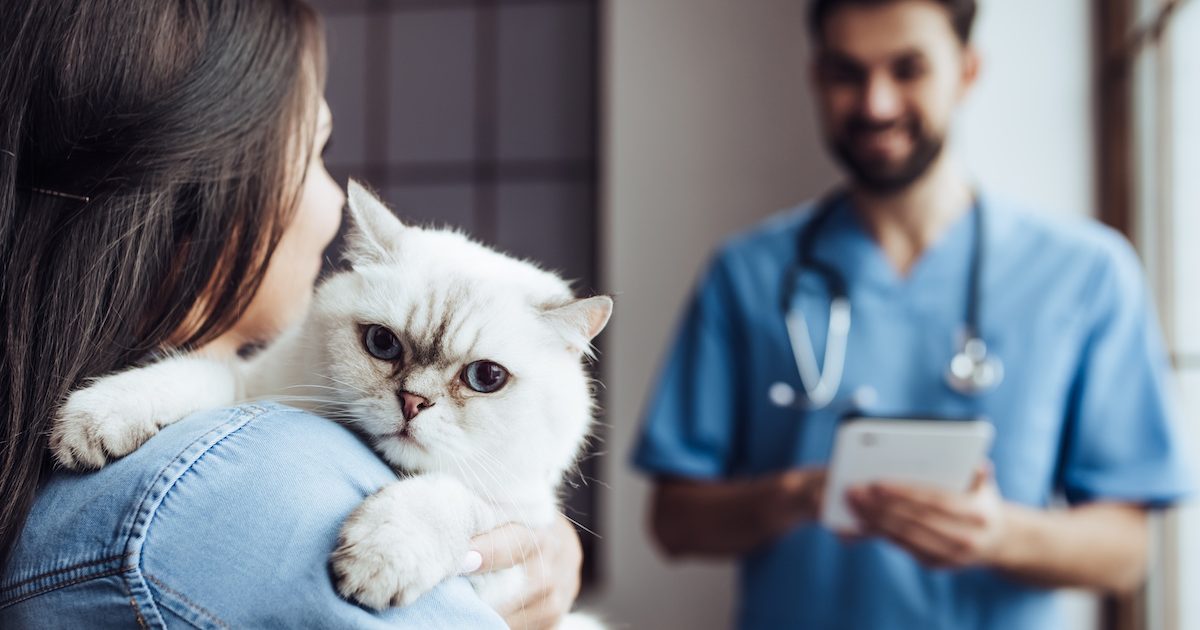Bringing a brand new kitten into your home opens your life to years of love and antics. Yet it can feel a bit overwhelming knowing you are solely responsible for the health of that little furball.
How can you be certain that you are doing all you can to protect your cat’s health, both now and in the future? One way is through giving your pet the required vaccination. A smarter way to do this, which ensures you don’t miss the vaccination schedules, is opting into pet care plan to stay on top of all the necessary preventative healthcare.
Why Cat Vaccinations Are Important
If the thought of making your cat endure shots is hard for you, you need to realise that vaccinating your cat is actually one of the most loving things a responsible pet owner can do.
Yet many cat owners find themselves wondering if cat vaccination is really necessary, especially for cats that never spend time outdoors. Does a cat need vaccinations, even if it is solely an indoor cat? The answer is yes!
It Helps Prevent Them from Acquiring Diseases
Vaccinations are a critical part of preventive health care for your cat. Even indoor cats can be exposed to serious and potentially fatal diseases because many of the diseases that fit within the normal vaccine schedule are airborne.
An open window is all it takes to expose your pet. Your cat may also be exposed at a routine trip to the vet’s office or at a boarding facility while you are on holiday or if you bring a new cat that has not yet been fully vaccinated into the home.
With a series of cat vaccinations, you can ensure that your cat is protected and safe, no matter what the future holds.
It Protects You from Avoidable Expenses
Cat vaccinations not only protect your cat’s health and potentially its life, but they also protect you financially. If your cat catches a preventable disease because you didn’t vaccinate, you face high vet bills to get your cat well.
It also may be the law in your community to have certain vaccinations kept up to date. Vaccines are important, as is a total plan for preventive healthcare. A wellness plan will ensure you never miss a vaccination. If you are serious about preventive healthcare and overall wellness for your cat, a wellness plan is an excellent tool to use.
How Do Cat Vaccinations Work?
A cat vaccination works by triggering your cat’s natural immune response to a serious illness. Often this is accomplished by exposing the cat to a small amount of the bacteria or virus, often in an inactivated state that can’t make the pet sick.
This stimulates the immune system to recognise the germ and produce the proper antibodies to kill it. In the future, if your cat faces the real germ, the body will respond properly and your pet will not get sick.
Cat Vaccination Schedules
Kittens need a series of vaccinations when they are very young because they are more prone to serious, deadly infections at a young age. It may seem like a lot of shots when you first talk to your vet about vaccinations for your kitten, but these vaccines set the stage for life-long immunity.
Kitten vaccines are typically scheduled about a month apart starting at six to eight weeks of age and end at about four months of age.
While some vaccines are finished after these kitten vaccines, your cat’s core vaccinations need boosters as your pet ages. This starts with a booster one year after the kitten series, then additional boosters every one to three years.
You will need to discuss the most effective vaccine schedule with your vet.
Recommended Cat Vaccines
For your cat’s vaccination, you will need to speak to your vet about the recommended schedule — taking into account your cat’s lifestyle and unique needs. Indoor cats may not need the same vaccines as outdoor cats, for example, because the risk of exposure to specific illnesses is minimal indoors.
That said, these are the core vaccinations typically recommended for all cats:
- Panleukopenia. Also known as feline parvovirus or feline distemper, the panleukopenia virus is a life-threatening viral disease that spreads quickly through non-vaccinated cat populations. This disease affects rapidly dividing cells in the body and can cause vomiting and diarrhoea and neurological signs. Young kittens are particularly sensitive.
- Feline Herpes Virus. This is a viral upper respiratory infection. It is highly contagious and can lead to pneumonia, particularity in kittens.
- Calicivirus. This is another viral respiratory disease, which also affects the intestines and the musculoskeletal system.
Extra Cat Vaccination Shots
In addition to the above-recommended vaccinations, you may also want to vaccinate your cat against these diseases:
- Feline Leukemia. This is one of the most common infectious diseases in cats, which often leads to cancer, blood disorders, and compromise a cat’s immune system. It can be transmitted by infected cats via their saliva and is one of the top causes of cat deaths worldwide.
- Feline Immunodeficiency Virus (FIV). Similar to human HIV, FIV is a slow-acting complex virus that weakens a cat’s immune system, which can make it easier to catch secondary, more dangerous infections and certain types of cancer.
- Chlamydophila Felis. A bacterial infection, this disease causes inflammation of the conjunctiva, respiratory problems, and rhinitis in cats.
While some of these diseases are not fatal, all are uncomfortable and fully preventable with vaccinations. As a responsible pet owner, you can help your cat avoid this discomfort by sticking with a recommended vaccination schedule.
Risks Associated with Cat Vaccines
As with all medication options, vaccines for cats do carry some risks. Many cats will experience decreased appetite and lethargy after their vaccines. Sometimes swelling at the vaccine site starts a few hours after administration. A slight fever is also common.
Thankfully, most of these will go away within a few days. If your cat experiences reactions that last longer, call your veterinarian. For almost every cat, the benefits vaccinations provide far outweigh any risks. If you have concerns about your specific cat, be sure to talk to your veterinarian.
Preventive Care for Happy, Healthy Pets
Vaccines are just one part of your cat’s preventive care. If you want your cat to be happy and healthy, start thinking about how you can be proactive about their healthcare needs so they get to enjoy a long and healthy life as best possible.
In addition to vaccinations, make sure you have taken care of parasite prevention to prevent diseases that parasites carry. Also, be sure to keep your pet’s annual checkups to ensure your vet can spot any serious health issues right away. Even nail clippings and dental checks are part of preventive care to keep your cat happy and healthy.
A great way to ensure your cat’s health needs are properly met is with a pet care plan. A pet care plan includes parasite prevention, medical checks, vaccinations, dental checks and extra member benefits. With a pet care plan, pet owners can make pet care easier (resulting in better compliance with a preventative health care plan) while saving money as they strive to give the best possible care to their cats.
Find the right pet care plan for your cat today, and have the confidence knowing you are doing all you can to keep your pet healthy, happy and well.



